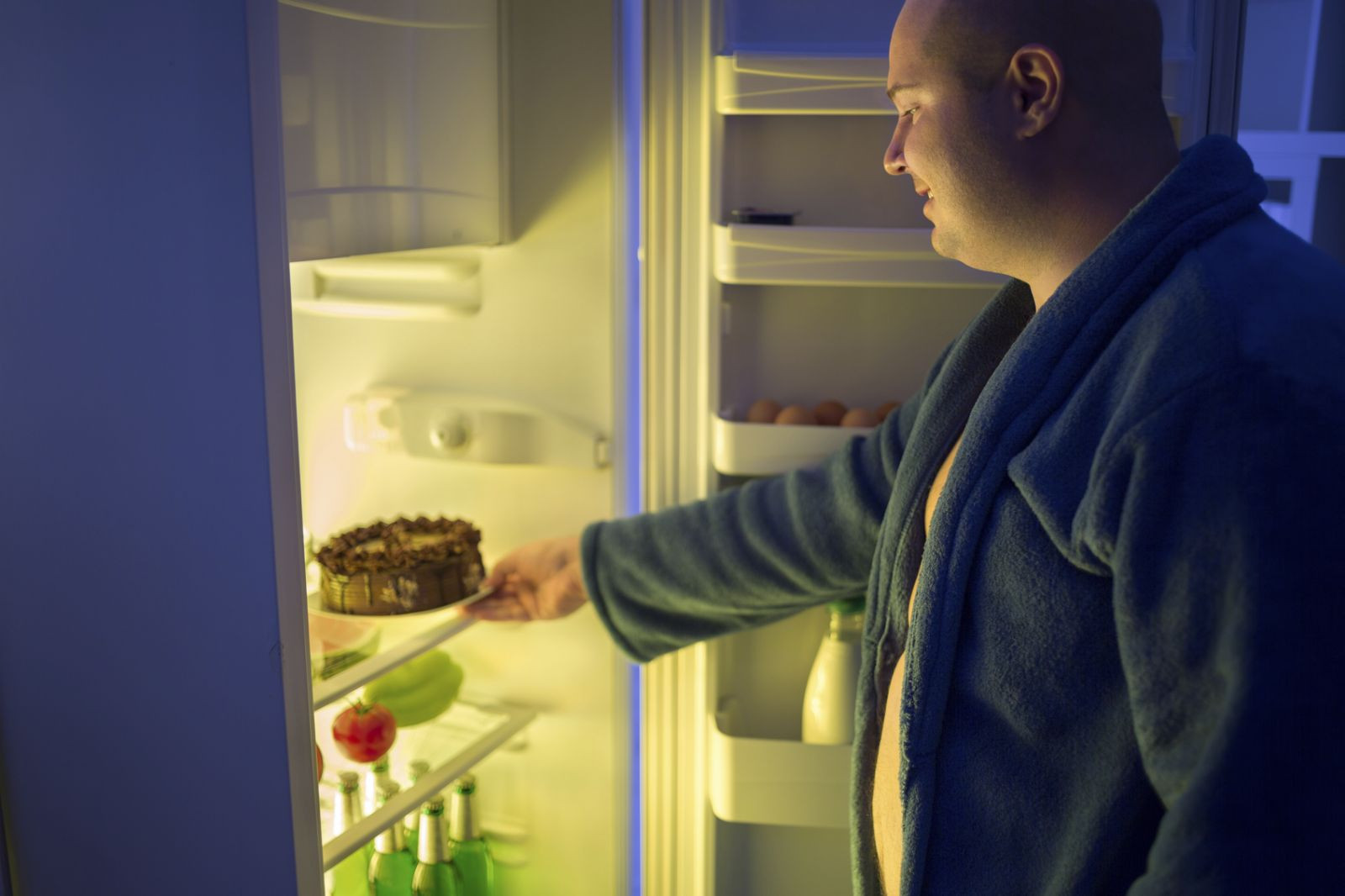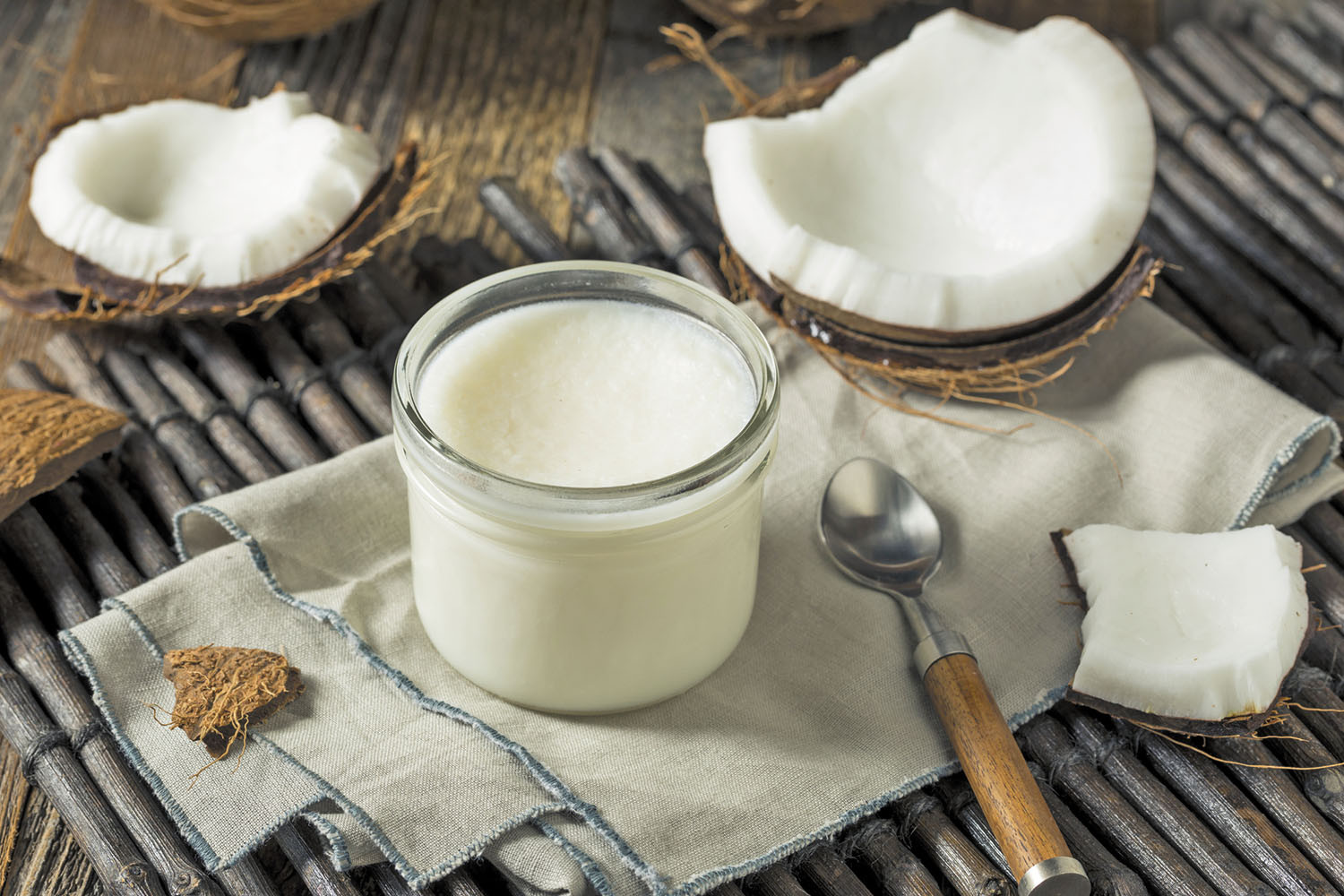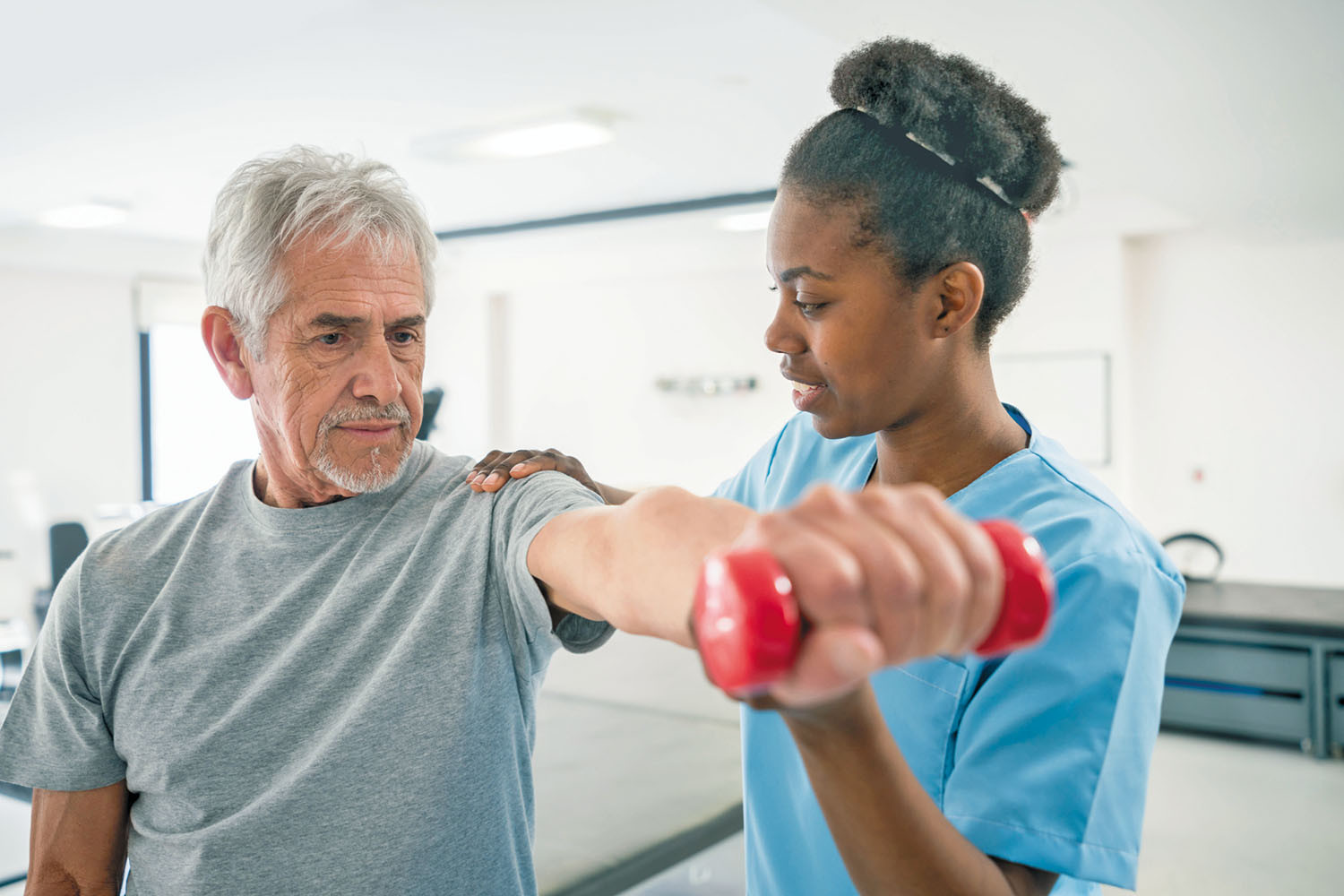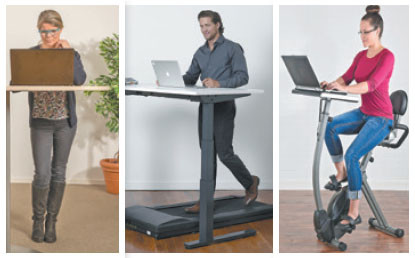
Salmonella is sneaky: Watch out

Two jobs may lower the odds of dying from Alzheimer's disease �� but why?

Mastitis: What to do when your breasts are painfully inflamed

How �� and why �� to fit more fiber and fermented food into your meals

UTI in older women: Why postmenopausal women are susceptible to urinary tract infection, and what to do about it

Can a routine vaccine prevent dementia?

Some adults may need a measles booster shot. Who should get one and why?

Less butter, more plant oils, longer life?

Healthier planet, healthier people

Counting steps is good �� is combining steps and heart rate better?
Staying Healthy Archive
Articles
Why people become overweight
Everyone knows some people who can eat ice cream, cake, and whatever else they want and still not gain weight. At the other extreme are people who seem to gain weight no matter how little they eat. Why? What are the causes of obesity? What allows one person to remain thin without effort but demands that another struggle to avoid gaining weight or regaining the pounds he or she has lost previously?
On a very simple level, your weight depends on the number of calories you consume, how many of those calories you store, and how many you burn up. But each of these factors is influenced by a combination of genes and environment. Both can affect your physiology (such as how fast you burn calories) as well as your behavior (the types of foods you choose to eat, for instance). The interplay between all these factors begins at the moment of your conception and continues throughout your life.
By the way, doctor: Is it okay to take ibuprofen p.m.?
Q.��I take ibuprofen p.m. on occasion �� maybe once a month or so �� to help me get to sleep. It seems to work. Is that okay?
A.��Ibuprofen p.m. is a combination medication that contains ibuprofen and diphenhydramine, which is the active ingredient in Benadryl, an antihistamine taken for allergies.
On call: Measuring the PSA Is fasting necessary?
��
Q.��I have always had my blood tests taken the first thing in the morning, before I've had breakfast. We've just moved to a new home and I'll have a long commute to the hospital, so I'd like to eat before I start out. My cholesterol has always been great, so my doctor said a light breakfast won't interfere with cholesterol tests. But he didn't know if eating would change my PSA result. What do you think?
A.��At last �� a PSA question with a simple, un-equivocal answer: Breakfast will not affect your PSA result, nor will lunch or dinner. In June 2005, doctors proved the point by measuring PSA levels three times over the course of a single day in 80 patients with an average age of 62 years. The samples were obtained before breakfast, after breakfast, and after lunch �� and there were no changes in the PSA results.
By the way, doctor: How often should I have a colonoscopy?
Q.��How often should a healthy 55-year-old woman have a colonoscopy? Do the benefits outweigh the risk of complications, such as bowel perforation?
A.��Colonoscopy is one of several tests used to screen for colorectal cancer, the third most common cancer and cause of cancer mortality (after breast and lung cancer) in American women. In 2018, some 140,000 Americans were diagnosed with the disease, and 50,000 died of it. Experts believe that adequate screening could have prevented perhaps 60% of those deaths.
By the way, doctor: What can I do about excessive belching and feeling full?
Q.��I belch a lot and get a feeling of fullness in the upper abdomen. Is excessive belching ��a common condition? What are the causes and cures? I would prefer natural remedies.
A.��Belching and feeling full are normal, everyday experiences. So, what makes them "excessive"? There's no precise definition. But if you start belching or feeling full more often than you have in the past, or if belching and fullness are causing you distress and discomfort, then I'd consider that excessive belching and a problem that you should try to solve.
By the way, doctor: Does having ridged and split fingernails mean I'm unhealthy?
Q.��I'm 63, and I've begun to notice a decline in the quality of my fingernails. They have numerous up-and-down ridges, and at the tips, they're always splitting. I've heard you can tell a lot about a person's health from the condition of her nails. What does my split nails say about mine?
A.��Some changes in nails can be a sign of an underlying health problem, but the lengthwise nail ridging you describe is usually not one. It's simply a common sign of normal aging. The growth of fingernails and toenails slows as we get older, and their appearance may change. Some nails become yellowed or dull and brittle, and some or all may develop tiny longitudinal ridges. Fingernails tend to become thinner and more fragile, while toenails usually become thicker and harder.
5 food and drink fads you can skip
Trendy isn't necessarily healthy. Consider alternatives instead.
It's fun to try new foods once in a while. But when a flashy food fad gets your attention, be careful. Just because a particular food or drink is showing up everywhere doesn't mean it's healthy. Here are five trends you can probably skip.
1. Vitamin-enhanced water
Vitamin-enhanced waters have names like Propel Vitamin Boost and Vitaminwater, and they promise lots of vitamins (like B, C, and E) and minerals (like magnesium, calcium, and potassium) in every gulp. But don't start guzzling. "There aren't enough nutrients added to these waters to make a difference in your health. I saw one product with 10 milligrams of potassium. The recommendation for daily potassium is 4,700 milligrams per day," says registered dietitian Kathy McManus, director of the Department of Nutrition at Harvard-affiliated Brigham and Women's Hospital. "You'll get more far more nutrients from a healthy diet."
Fight back against muscle weakness
Pinpoint the cause and take steps to preserve your mobility and independence.
Muscle weakness is sneaky. It often appears gradually and makes once-simple tasks harder �� like having to rock back and forth to get out of a chair or tug a few times on the car door to open it.
More than an inconvenience, muscle weakness has a domino effect on health. It slows your metabolism (how fast your body burns energy), puts more pressure on your joints, hurts your posture, throws off your balance, and limits your mobility.
Taking medications on the road
Ask questions about rules, and get supplies in advance.
When it's time for an overnight or extended trip, there are lots of things to pack �� your clothes, toiletries, and maybe important documents. But sometimes medicine isn't at the top of the list. "I hear about people forgetting medications at home, not bringing enough for the whole trip, or packing them in a suitcase that gets lost," says Dr. Suzanne Salamon, associate chief of gerontology at Harvard-affiliated Beth Israel Deaconess Medical Center.
Whether you're staying across town or traveling around the world, consider the following strategies to help you maintain your medication regimen.
Should you use an active workstation at home?
These desks are tied to both health benefits and risks.
Active workstations aren't just for the office. The desks that enable you to stand, walk, or cycle while working are showing up in schools, libraries, airports, hotels, and even coffee shops. But is an active workstation so important you should use one at home, and is it safe for an older adult?
Why they're popular
Active workstations help people reduce time spent sitting. Prolonged periods of inactivity are linked to heart disease, stroke, diabetes, and even an early death. "All of our body functions �� including blood flow, blood pressure, heart and lung function, and blood sugar processing �� improve when we expend energy with physical activity, but they decline with inactivity," says I-Min Lee, a professor of medicine at Harvard Medical School who studies the role of physical activity in disease prevention.

Salmonella is sneaky: Watch out

Two jobs may lower the odds of dying from Alzheimer's disease �� but why?

Mastitis: What to do when your breasts are painfully inflamed

How �� and why �� to fit more fiber and fermented food into your meals

UTI in older women: Why postmenopausal women are susceptible to urinary tract infection, and what to do about it

Can a routine vaccine prevent dementia?

Some adults may need a measles booster shot. Who should get one and why?

Less butter, more plant oils, longer life?

Healthier planet, healthier people

Counting steps is good �� is combining steps and heart rate better?
Free Healthbeat Signup
Get the latest in health news delivered to your inbox!
Sign Up









